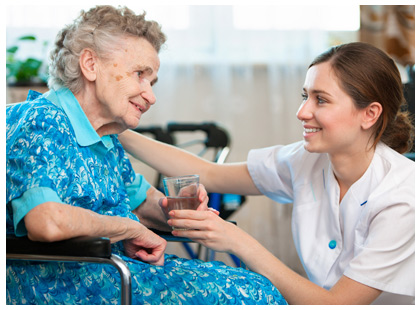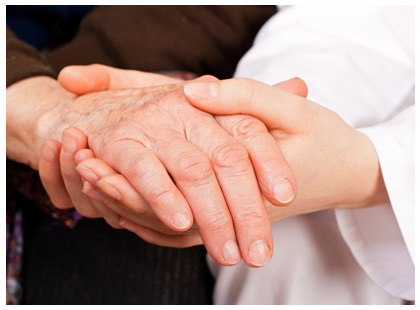Our Service list

In-Home Care Services
In-Home Care services (non medical home care) are for seniors and elderly people who need assistance with their daily life tasks. Each plan of care is individually tailored by our Director of Patient Care Services to meet each person’s distinct needs. Affective Healthcare can be the perfect solution to help an individual remain independent in the comfort of their own home. Our in-home CAREgiving services include but are not limited to:
- Assistance with ADL’s (activities of daily living)
- Personal Care
- Hygiene Care
- Skin Care
- Incontinency Care
- Hourly Care / Live-in Care / Respite Care
- Dressing and Grooming
- Bed Positioning
- Medication Reminders by Caregivers
- General Care and Supervision
- Fall Prevention Measures
- Companionship
- Errands
- Conversations
- Range of Motion Exercises
- Night Supervision
- Meal Preparation
- Oversee Nutrient and Liquid Intake
- Prepare grocery lists
- Transportation
- Escort to Appointments
- Light Housekeeping

Private Duty Nursing Services
Private Duty Nursing services are for those who have more complex medical conditions who are in need of supervision by a licensed nurse. Our nurses do not perform invasive procedures. Affective Healthcare takes the extra time to have a Registered Nurse fully assess each patient’s medical disorder, develop a personalized plan of care, and follow up with the patient every week. Each skilled nurse assigned to each case completes a Daily Activity Log, Narrative Clinical Notes, and Medication Handout every shift, documenting activities done during the shift. Our Private Duty Nursing Services include most of our In-home Care Services but also include:
- Medication Administration by a licensed nurse
- Medication management
- Measuring height and weight
- Assisting with mobility
- Patient teachings
- Providing transfer assistance
- Escorting to medical appointments
- Assisting with ambulation
- Monitoring vital signs

Alzheimers and Dementia Care
What is Dementia?
Dementia is a general term used to describe the decline in mental ability that is enough to interfere with daily life tasks. Symptoms of dementia can vary greatly but at least two of the following core mental functions must be significantly impaired to be considered dementia:
- Memory
- Communication and language
- Ability to focus and pay attention
- Reasoning and judgment
- Visual perception
People with dementia may have problems with short term memory, keeping track of a wallet or purse, paying bills, planning and preparing meals, remembering appointments, etc.
What is Alzheimer’s Disease
Alzheimer’s is the most common type of dementia. It accounts for 50 to 80 percent of dementia cases. There currently is no cure but researchers are currently looking for new treatments and care techniques to improve the quality of life for those suffering from Alzheimer’s disease.
10 Warning Signs of Alzheimer’s and Dementia
- Memory changes that disrupt daily life
- Challenges in planning or solving problems
- Difficulty completing familiar tasks at home, at work, or at leisure
- Confusion with time or place
- Trouble understanding visual images or spatial relationships
- New problems with words in speaking or writing
- Misplacing things and losing the ability to retrace steps
- Decreased or poor judgment
- Withdrawal from work or social activities
- Changes in mood and personality
How Affective Healthcare Can Help
Our professional staff is knowledgeable and trained to safely help your loved ones with their daily life tasks. They have the experience, patience, and understanding to deal with those suffering with Alzheimer’s and Dementia. Let our Affective CAREgivers be your home care solution to help relieve any care giving strain you may have.

Chronic Disease Management
What is a Chronic Disease
A chronic disease is one that can be controlled, but not cured. In most cases, a chronic disease will require a lifetime of regular treatment. Some chronic illnesses cause permanent disability. Chronic diseases are usually characterized by acute episodes of illness followed by periods of time where symptoms may be reduced or absent. 88 percent of Americans over 65 years of age have at least one chronic health condition. The most common types of Chronic Diseases are:
- Arthritis
- Cardiovascular disease
- Cancer
- Diabetes
- Obesity
How Affective Healthcare Can Help
Affective CAREgivers are here to help improve the quality of life for your loved ones. Preparation of healthy and nutritious meals can go a long way when it comes to the health of a person. Regular exercise can also help by reducing joint pain and stiffness, building strong muscle around the joints, and increasing flexibility and endurance. Let Affective Healthcare be the home care solution for your loved ones

Mental Health Homecare Services
Each nurse has received additional training in psychological therapies, building therapeutic alliance, dealing with challenging behavior, and administration of psychiatric medication as they provide comprehensive medical/surgical and psychiatric home care. All other staff has also received additional training to complement their experience as they specialize in Mental Health and aid in ADL’s.
Our definitive goal is to have our patients successfully perform mental functions, resulting in the ability to engage in productive activities, take pleasure in fulfilling relationships, and change or cope with adversity.
Referrals are accepted from primary or psychiatric physicians
Affective Healthcare has psychiatric mental health nurses and social workers with expertise in:
- Management of Alzheimer’s disease, dementia, Parkinson’s Disorder and CVA
- Newly diagnosed patients on psychotropic medications
- Medical and symptom management
- Education of disease process
- Coping Skills Cognitive retraining
- Maintaining Therapeutic Environment
- Strengthening of support systems
- Behavior Management
- Any emotional issues which may impair the resolution of medical problems

Case Management Services
Affective Healthcare staff works closely with our patients’ Primary and Referring Physicians, Psychiatrists, Psychologists to ensure that Plans of Care are followed through, aiding in reaching short and long term healthcare goals.






